The Dangers Associated With Electricity In Your Home
- Posted by:
- Admin
- Tags:
- Posted date:
- 07-09-2022

Most Dangerous Electrical Hazards in Your Home.
Most of us don't give the wires in our walls much attention; we just plug everything in and hope it works. Just a handful of the numerous and pervasive electrical threats are shown below.
Lightbulbs
Lightbulbs aren't inherently harmful and aren't frequently thought of as possible electrical risks. When lightbulbs are near combustible materials, an electrical fire risk exists. Beds, curtains, plastics, and other things like upholstery can be examples of them.
Outlets Close to Water
Electrical outlets should be situated safely away from water sources in bathrooms, kitchens, and other wet areas. Since water transfers electricity, keeping outlets away from it reduces the danger of receiving an electric shock.
Poor Wiring & Defective Wires
It is essential to install high-quality, safety-compliant wiring in your home since poor wiring raises the risk of power surges, fires, and other harmful health impacts.
It is advisable to avoid the "do it yourself" approach when it comes to electrical work and instead contact licenced electricians to handle your needs for this very reason.
Damaged and corroded wires may dramatically increase the risk of electrically caused accidents.
Use a certified electrician to regularly check your wiring to guarantee its security to prevent this. If any old wires are discovered, be sure to have them replaced.
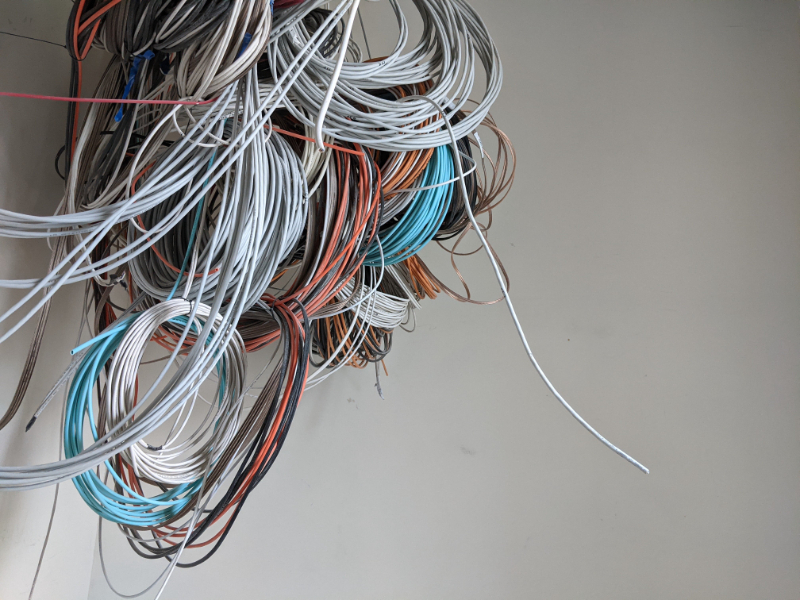
Covered Electrical Cords & Wires
Overheating cables may result from heavy wire coating. Covered cables and wires can occasionally cause electrical fires owing to overheating, however, this is rather uncommon.
This is due to the heat radiation from electrical lines and cords. If in doubt, keep cables and wires out of the way and unprotected.
Inquisitive Children
Young infants and toddlers frequently have a strong curiosity about the outside environment. Even though it's ideal to watch over children this age constantly, parents and other people who anticipate having children over should take extra precautions to keep small children safe. Every electrical outlet that is within its reach must have plastic covers on it.
These are designed to fit directly over the socket, shielding it from fingers and other protruding items. Unsafe sockets can cause major harm or even death.
Unprotected Outlets
Small children are inquisitive; it's entirely natural. However, it also implies that you need to purchase covers for your electrical outlets.
Otherwise, little fingers or objects might get caught in the outlets, causing burns, shocks, or even electrocution.
You may use plastic covers or purchase child-safe wall plates with covers that automatically snap into place when not in use, similar to those used to protect outdoor outlets from the elements.
Even safer, have one of our electricians come out and replace all of your accessible outlets with "tamper-proof" ones.
amper-resistant outlets are typical in new houses and will keep your children safe when an item is plugged in. After you've finished with the outlets, you'll need to child-proof the remainder of your home.
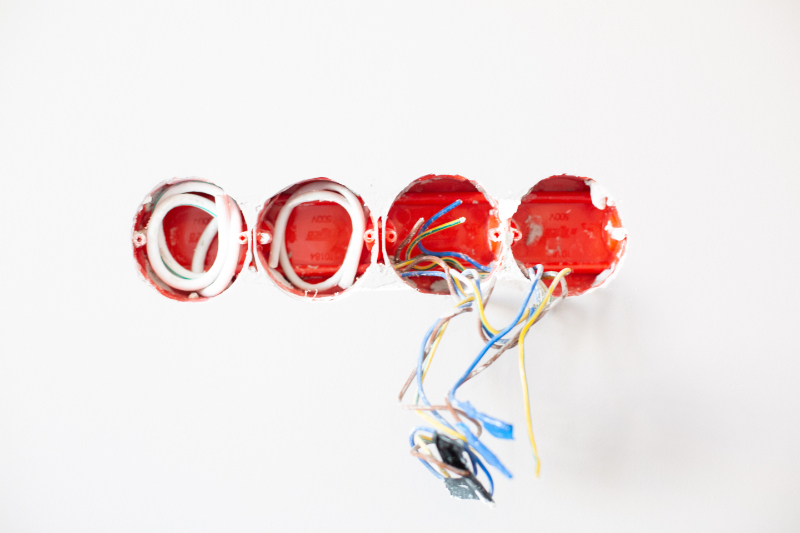
Wet Hands
Never handle electrical items with damp hands since this increases the risk of receiving an electric shock. After getting out of the shower, far too many of us tend to grab the hair dryer. Maintain a safe separation between appliances and faucets, baths, showers, and sinks.
Extension Cords
If at all feasible, extension cables should be securely fastened to prevent trips and other injuries. For further security, cover unused sockets with plastic socket caps.
Arc Faults
An arc fault can occur when wires or contacts come into contact by mistake, resulting in a spark or arc.
Consider it analogous to an unintended detour after a road closes: the electrical current follows an unanticipated course.
This can occur with very old wire if the insulation has worn away or has been nibbled away by mice.
The arc generates high-intensity heat that can burn the items surrounding it, resulting in an electrical fire in your home.
An arc-fault circuit interrupter (AFCI) is intended to safeguard you from electrical fires by interrupting power to the circuit whenever an arc fault occurs.
It detects low-level arcing before it becomes a fire threat, making it more effective than a regular circuit breaker.
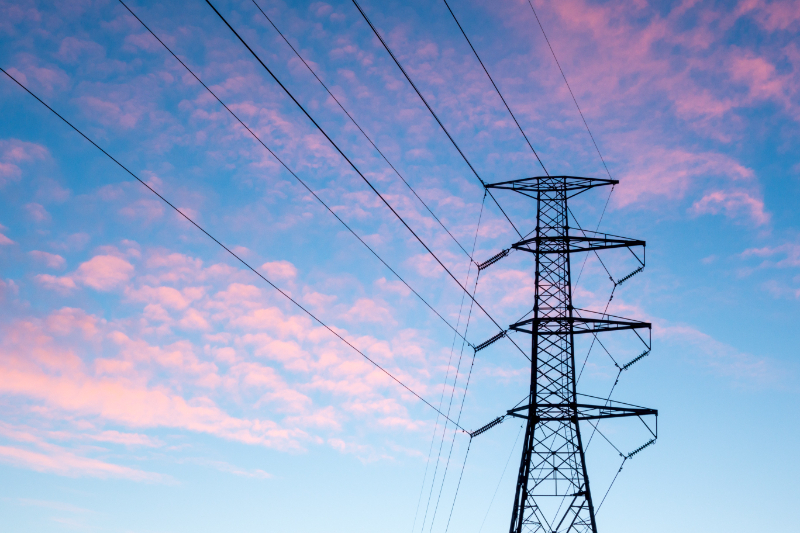
Old Wiring
Professionally placed wiring will endure a long time. It must, however, be compatible with all of your appliances. Incompatible or poor wiring is one of the leading causes of fires. If your wiring is many decades old, get it inspected at least once a year.
Wrong Wattage
Something is fulfilling about changing out a light bulb. However, you must ensure that it is the correct bulb for your light. When replacing a bulb, check sure the wattage is less than or equal to the lamp's maximum wattage. This is indicated by a sticker on the fixture. You should also ensure that any new lights you install in your house or basement are compatible with your current electrical system.
Ground Faults
Ground problems occur when electricity does not flow normally through your wiring to the ground. It takes a detour, much like arc faults.
Unlike arc faults, though, the detour is frequently conducted through a person.
Ground-fault circuit interrupters (GFCI) reduce the risk of electrocution by monitoring the input and output of electricity in your circuit. If there is a fluctuation, the GFCI will respond by turning off the power.
GFCIs are typically installed in electrical circuits near water, where the risk of electrocution is higher. This contains the kitchen, bathroom, the washing room, as well as the hot tub.
Even if you have GFCIs, you should practise operating appliances near water carefully. Wrap the cables of your appliances and put them a safe distance away while not in use.
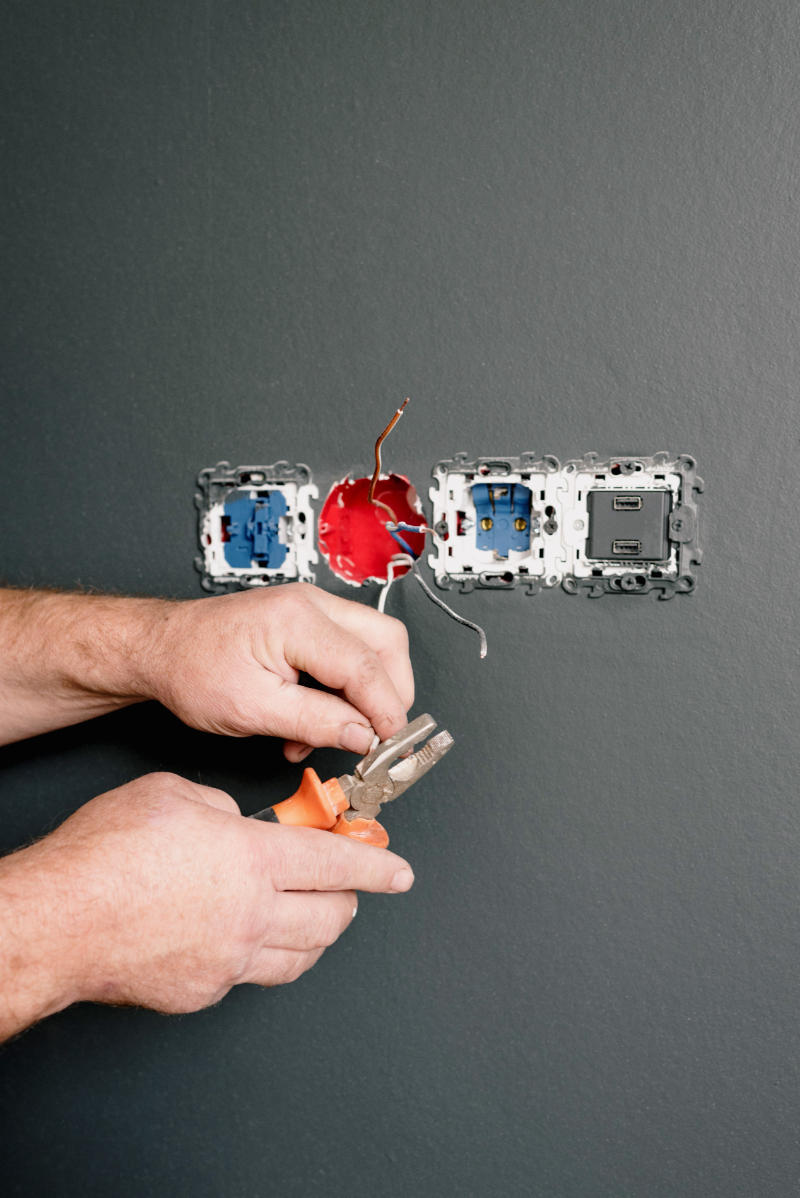
Faulty Appliances
We've all had the experience of a cord is frayed, loosened, or corroded. Nonetheless, many of us keep using these cables "for a little longer - until I can purchase a new one".
This is a definite no-no. If you detect a defective cord, cease using it right away. You should also avoid attempting to repair it using electrical tape.
Overloaded Outlets
We all have a lot of things that have to be plugged in, but our walls only have so many outlets. It's really simple to hook in our TVs, speakers, computers, and anything else. This is a very common electrical error. When many plugs are stacked - or "piggybacked" - on the same outlet, the number of amps utilised increases.
This raises the likelihood of short circuits and fires.One plug per socket in each outlet is a decent rule of thumb, and disconnect anything you aren't using. This will also minimise the amount of standby - or "phantom" - power you consume, lowering your electric cost. Limit your use of power bars to one or two. They should not be used in the same room, nor should they be connected (also known as "daisy chaining").
Broken Smoke Alarms
In the case of a fire, smoke alarms are your first line of defence. If they're truly working, they might save your life.
Batteries in battery-operated alarms should be replaced at least once a year, and they should be tested once a month. You won't be able to swap a lithium battery and will have to rely on testing to check if it's still working.
Hardwired alarms should be tested once a month. If they don't work, hire an electrician to fix them.
For optimal security, alarms should be installed in all sleeping spaces, one per floor.
If your house does not contain a carbon monoxide (CO) detector, you can convert your current alarms to combined smoke/CO detectors.
This will notify you if there are dangerous amounts of both smoke and carbon monoxide.
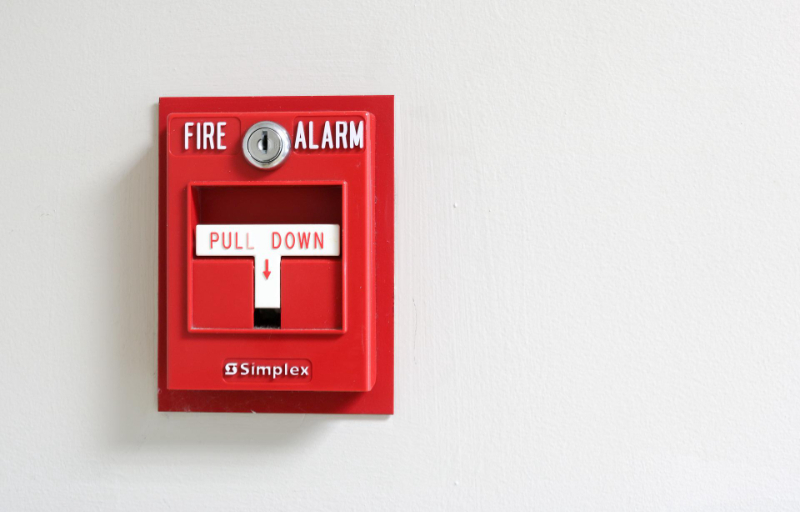
Pouring Water on Electrical Fires
A common mistake is to use water to put out an electrical fire. If you're worried about electrical fires, have a fire extinguisher nearby and use it to put out flames instead of using water to douse them since water spreads the flames.
We hope this article has been helpful in understanding the common causes of electrical problems.
If you live in the Retford, Nottinghamshire area and you need help or advice with commercial or domestic electrical testing we can help. Follow the links below to contact our local Retford electrical expert today.
